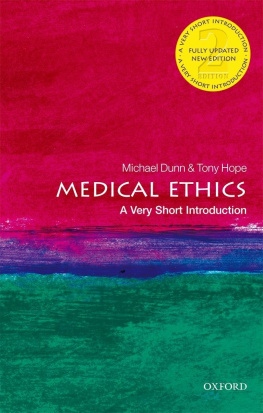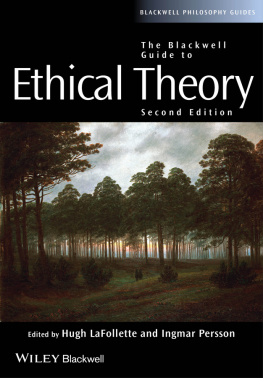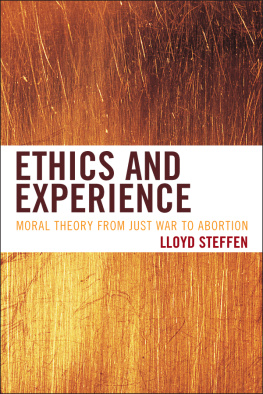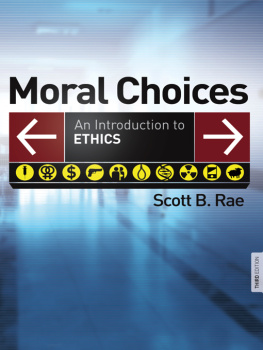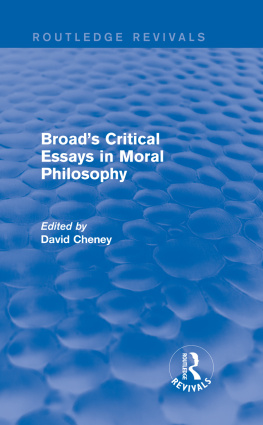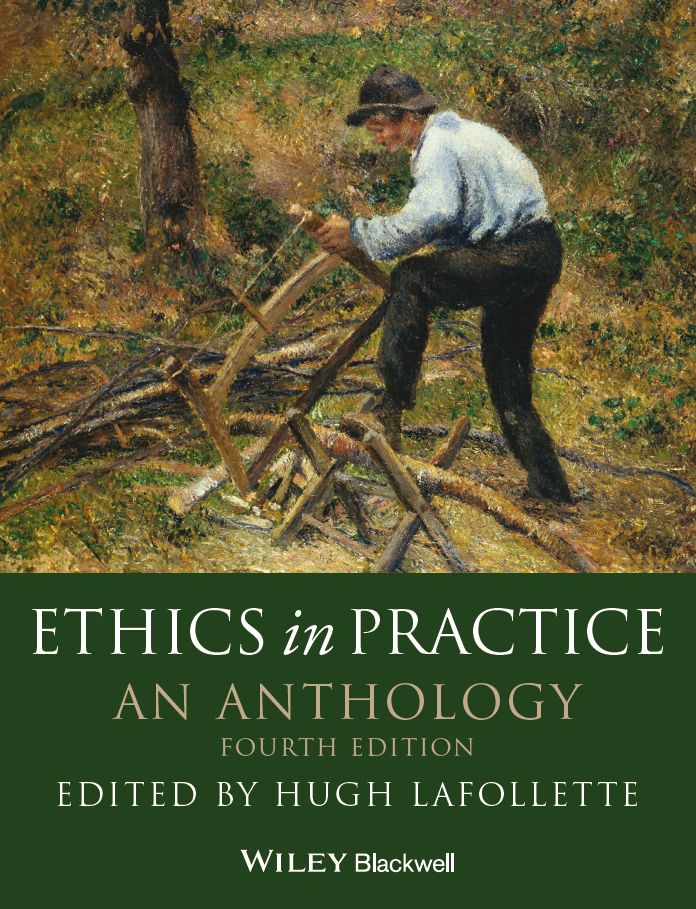
BLACKWELL PHILOSOPHY ANTHOLOGIES
Each volume in this outstanding series provides an authoritative and comprehensive collection of the essential primary readings from philosophys main fields of study. Designed to complement the Blackwell Companions to Philosophy series, each volume represents an unparalleled resource in its own right, and will provide the ideal platform for course use.
1 Cottingham: Western Philosophy: An Anthology (second edition)
2 Cahoone: From Modernism to Postmodernism: An Anthology (expanded second edition)
3 LaFollette: Ethics in Practice: An Anthology (third edition)
4 Goodin and Pettit: Contemporary Political Philosophy: An Anthology (second edition)
5 Eze: African Philosophy: An Anthology
6 McNeill and Feldman: Continental Philosophy: An Anthology
7 Kim and Sosa: Metaphysics: An Anthology
8 Lycan and Prinz: Mind and Cognition: An Anthology (third edition)
9 Kuhse and Singer: Bioethics: An Anthology (second edition)
10 Cummins and Cummins: Minds, Brains, and Computers The Foundations of Cognitive Science: An Anthology
11 Sosa, Kim, Fantl, and McGrath: Epistemology: An Anthology (second edition)
12 Kearney and Rasmussen: Continental Aesthetics Romanticism to Postmodernism: An Anthology
13 Martinich and Sosa: Analytic Philosophy: An Anthology
14 Jacquette: Philosophy of Logic: An Anthology
15 Jacquette: Philosophy of Mathematics: An Anthology
16 Harris, Pratt, and Waters: American Philosophies: An Anthology
17 Emmanuel and Goold: Modern Philosophy From Descartes to Nietzsche: An Anthology
18 Scharff and Dusek: Philosophy of Technology The Technological Condition: An Anthology
19 Light and Rolston: Environmental Ethics: An Anthology
20 Taliaferro and Griffiths: Philosophy of Religion: An Anthology
21 Lamarque and Olsen: Aesthetics and the Philosophy of Art The Analytic Tradition: An Anthology
22 John and Lopes: Philosophy of Literature Contemporary and Classic Readings: An Anthology
23 Cudd and Andreasen: Feminist Theory: A Philosophical Anthology
24 Carroll and Choi: Philosophy of Film and Motion Pictures: An Anthology
25 Lange: Philosophy of Science: An Anthology
26 Shafer-Landau and Cuneo: Foundations of Ethics: An Anthology
27 Curren: Philosophy of Education: An Anthology
28 Shafer-Landau: Ethical Theory: An Anthology
29 Cahn and Meskin: Aesthetics: A Comprehensive Anthology
30 McGrew, Alspector-Kelly and Allhoff: The Philosophy of Science: An Historical Anthology
31 May: Philosophy of Law: Classic and Contemporary Readings
32 Rosenberg and Arp: Philosophy of Biology: An Anthology
33 Kim, Korman, and Sosa: Metaphysics: An Anthology (second edition)
34 Martinich and Sosa: Analytic Philosophy: An Anthology (second edition)
35 Shafer-Landau: Ethical Theory: An Anthology (second edition)
36 Hetherington: Metaphysics and Epistemology: A Guided Anthology
37 Scharff and Dusek: Philosophy of Technology The Technological Condition: An Anthology (second edition)
38 LaFollette: Ethics in Practice: An Anthology (fourth edition)

This edition first published 2014
2014 John Wiley & Sons, Inc
Registered Office
John Wiley & Sons, Ltd, The Atrium, Southern Gate, Chichester, West Sussex, PO19 8SQ, UK
Editorial Offices
350 Main Street, Malden, MA 021485020, USA
9600 Garsington Road, Oxford, OX4 2DQ, UK
The Atrium, Southern Gate, Chichester, West Sussex, PO19 8SQ, UK
For details of our global editorial offices, for customer services, and for information about how to apply for permission to reuse the copyright material in this book please see our website at www.wiley.com/wiley-blackwell .
The right of Hugh LaFollette to be identified as the author of the editorial material in this work has been asserted in accordance with the UK Copyright, Designs and Patents Act 1988.
All rights reserved. No part of this publication may be reproduced, stored in a retrieval system, or transmitted, in any form or by any means, electronic, mechanical, photocopying, recording or otherwise, except as permitted by the UK Copyright, Designs and Patents Act 1988, without the prior permission of the publisher.
Wiley also publishes its books in a variety of electronic formats. Some content that appears in print may not be available in electronic books.
Designations used by companies to distinguish their products are often claimed as trademarks. All brand names and product names used in this book are trade names, service marks, trademarks or registered trademarks of their respective owners. The publisher is not associated with any product or vendor mentioned in this book.
Limit of Liability/Disclaimer of Warranty: While the publisher and author have used their best efforts in preparing this book, they make no representations or warranties with respect to the accuracy or completeness of the contents of this book and specifically disclaim any implied warranties of merchantability or fitness for a particular purpose. It is sold on the understanding that the publisher is not engaged in rendering professional services and neither the publisher nor the author shall be liable for damages arising herefrom. If professional advice or other expert assistance is required, the services of a competent professional should be sought.
Library of Congress Cataloging-in-Publication Data is available on request.
9780470671832 (PB)
A catalogue record for this book is available from the British Library.
Cover image: Camille Pissarro, Father Sawing Wood, Pontoise, 1879, oil on canvas. Christies Images / Corbis
Cover design by Nicki Averill Design and Illustration
Preface for Instructors
This anthology seeks to provide engagingly written, carefully argued philosophical essays, on a wide range of important, contemporary ethical issues. When I had trouble finding essays that suited those purposes, I commissioned new essays four for this edition. I also invited a number of philosophers to revise their classic essays three for this edition, with four reprints new to this edition. Altogether, more than half of the essays were written or revised specifically for Ethics in Practice. This edition also features a new introductory essay, Writing a Philosophy Paper.
The result is a tasty blend of the old and the new, the familiar and the unfamiliar. I have organized the book into five thematic sections and fifteen topics to give you the greatest flexibility to construct the course you want. When feasible, I begin or end sections with essays that bridge to preceding or following sections.
Although I have included essays I think introductory students can read and comprehend, no one would believe me if I claimed all the essays are easy to read. We all know many students have trouble reading philosophical essays. That is not surprising. Many of these essays were written originally for other professional philosophers, not first-year undergraduates. Moreover, even when philosophers write expressly for introductory audiences, their ideas, vocabularies, and styles are often foreign to the introductory student. So I have included a brief introduction on READING PHILOSOPHY to advise students on how to read and understand philosophical essays.
Next page


